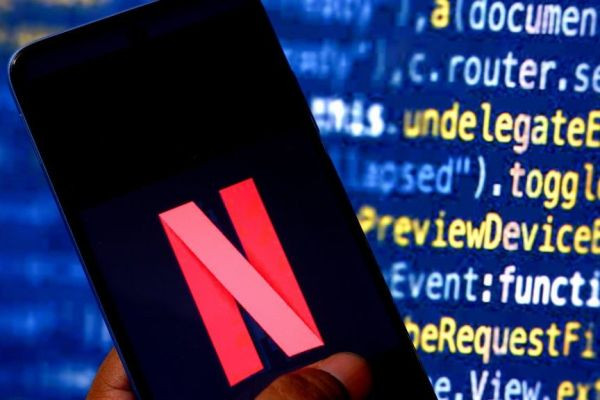As Hollywood faces significant strikes by actors and writers over concerns about the influence of artificial intelligence (AI) on the entertainment industry and pay, Netflix has triggered fresh outrage by posting a job advertisement for an AI expert with a jaw-dropping salary of up to $900,000 per year. The move has reignited the debate surrounding the role of AI in content creation and investment decisions, with Hollywood unions raising their voices against the potential adverse effects of algorithms on creative expression and job security.
The Controversial Job Listing:
First reported by The Intercept, Netflix's job listing for an AI expert adds fuel to the fire of an ongoing labor dispute in the entertainment world. The position would be part of the Machine Learning Platform team, which drives the algorithm responsible for helping viewers select new programs to watch on the streaming platform.
Union Concerns and Accusations:
Hollywood unions, including the Screen Actors Guild-American Federation of Television and Radio Artists (Sag-Aftra) and the Writers Guild of America (WGA), have expressed alarm over the increasing reliance on AI in the entertainment industry. They fear that algorithms wield too much power in shaping content decisions, resulting in reduced opportunities for actors and writers.
Fran Drescher, a spokesperson for Sag-Aftra, highlighted the impact of algorithms on programming decisions, claiming that they dictate episode and season lengths based on subscriber growth. This approach has led to shorter seasons and reduced opportunities for actors, exacerbating job insecurity within the industry.
The WGA has proposed a system to regulate the use of AI in the writing process, aiming to prevent algorithms from serving as the primary source material and inhibiting creative expression.
Netflix's Response:
Netflix has refrained from commenting on specific job listings but has previously stated that AI will not replace the creative process. The streaming giant emphasizes its commitment to original storytelling and insights derived from human experiences. However, the timing of the AI job posting amidst the ongoing labor strikes has sparked skepticism within the entertainment community.
Actor and writer sentiments:
The reaction from striking actors and writers has been strong, with some expressing frustration over the apparent contradiction between the AI roles and the current industry struggles. Actor Rob Delaney condemned the high salary for an AI expert when it could cover health insurance for multiple actors and their families. Writer Javier Grillo-Marxuach accused Netflix of recruiting well-paid AI experts while seemingly pleading poverty.
Conclusion:
As Hollywood continues to grapple with strikes, Netflix's decision to advertise lucrative AI roles has added further tension to the already contentious relationship between entertainment industry workers and emerging technologies. The debate over the role of AI in content creation and investment decisions is likely to persist, with both unions and streaming platforms seeking to strike a balance between the benefits of AI technology and the preservation of creative expression and job security. As the entertainment landscape evolves, the implications of AI on Hollywood's future will remain a central concern for all stakeholders involved.
 Bitcoin: $97803.42 1.12%
Bitcoin: $97803.42 1.12%  Ethereum: $3413.42 2.96%
Ethereum: $3413.42 2.96%  Tether: $1.00 0.01%
Tether: $1.00 0.01%  Solana: $256.50 0.32%
Solana: $256.50 0.32%  BNB: $659.02 5.44%
BNB: $659.02 5.44%  XRP: $1.47 0.45%
XRP: $1.47 0.45%  Dogecoin: $0.43 6.01%
Dogecoin: $0.43 6.01%  USDC: $1.00 0.08%
USDC: $1.00 0.08%  Cardano: $1.06 9.49%
Cardano: $1.06 9.49%  Lido Staked ETH: $3395.29 3.15%
Lido Staked ETH: $3395.29 3.15%  TRON: $0.21 7.15%
TRON: $0.21 7.15%  Avalanche: $42.45 6.89%
Avalanche: $42.45 6.89%  Shiba Inu: $0.00 3.71%
Shiba Inu: $0.00 3.71%  Stellar: $0.51 68.07%
Stellar: $0.51 68.07%  Wrapped Bitcoin: $97434.73 1.2%
Wrapped Bitcoin: $97434.73 1.2%  Polkadot: $8.56 35.79%
Polkadot: $8.56 35.79%  Chainlink: $17.51 11.23%
Chainlink: $17.51 11.23%  Bitcoin Cash: $509.41 4.2%
Bitcoin Cash: $509.41 4.2%  UNUS SED LEO: $8.61 1.26%
UNUS SED LEO: $8.61 1.26%  NEAR Protocol: $6.28 10.81%
NEAR Protocol: $6.28 10.81%  Litecoin: $98.92 9.39%
Litecoin: $98.92 9.39%  Uniswap: $10.87 14.64%
Uniswap: $10.87 14.64%  Internet Computer: $11.38 13.19%
Internet Computer: $11.38 13.19%  Multi Collateral DAI: $1.00 0.03%
Multi Collateral DAI: $1.00 0.03%  Crypto.com Coin: $0.19 2.84%
Crypto.com Coin: $0.19 2.84%  Sp8de: $0.59 12.79%
Sp8de: $0.59 12.79%  Ethereum Classic: $29.86 6.44%
Ethereum Classic: $29.86 6.44%  VeChain: $0.04 30.44%
VeChain: $0.04 30.44%  Artificial Superintelligence Alliance: $1.39 12.21%
Artificial Superintelligence Alliance: $1.39 12.21%  Filecoin: $5.37 13.96%
Filecoin: $5.37 13.96%  Stacks: $2.09 6.76%
Stacks: $2.09 6.76%  OKB: $50.41 9.78%
OKB: $50.41 9.78%  Monero: $160.32 1%
Monero: $160.32 1%  Aave: $177.08 7.35%
Aave: $177.08 7.35%  Algorand: $0.30 23.85%
Algorand: $0.30 23.85%  Fantom: $0.89 23.1%
Fantom: $0.89 23.1%  The Graph: $0.24 13.13%
The Graph: $0.24 13.13%  Hedera Hashgraph: $0.15 11.82%
Hedera Hashgraph: $0.15 11.82%  Injective: $28.23 15.09%
Injective: $28.23 15.09%  Cosmos: $8.26 13.13%
Cosmos: $8.26 13.13%  THORChain: $5.71 7.85%
THORChain: $5.71 7.85%  THETA: $1.92 13.1%
THETA: $1.92 13.1%  MANTRA DAO: $3.67 0.37%
MANTRA DAO: $3.67 0.37%  Raydium: $6.05 0.11%
Raydium: $6.05 0.11%  Arweave: $22.35 26.87%
Arweave: $22.35 26.87%  Maker: $1656.26 0.71%
Maker: $1656.26 0.71%  Bitcoin SV: $71.09 5.33%
Bitcoin SV: $71.09 5.33%  KuCoin Token: $11.50 3.67%
KuCoin Token: $11.50 3.67%  Polygon: $0.57 20.47%
Polygon: $0.57 20.47%  Flow: $0.84 16.64%
Flow: $0.84 16.64%  Quant: $102.46 19.16%
Quant: $102.46 19.16%  Gala: $0.03 17.46%
Gala: $0.03 17.46%  Lido DAO: $1.34 9.08%
Lido DAO: $1.34 9.08%  EOS: $0.77 8.46%
EOS: $0.77 8.46%  Tezos: $1.15 3.76%
Tezos: $1.15 3.76%  Neo: $14.71 10.55%
Neo: $14.71 10.55%  Axie Infinity: $6.73 13.84%
Axie Infinity: $6.73 13.84%  Helium: $5.86 7.6%
Helium: $5.86 7.6%  Decentraland: $0.51 20.23%
Decentraland: $0.51 20.23%  The Sandbox: $0.42 16.79%
The Sandbox: $0.42 16.79%  Akash Network: $3.97 6.43%
Akash Network: $3.97 6.43%  GateToken: $11.01 8.94%
GateToken: $11.01 8.94%  AIOZ Network: $0.82 12.67%
AIOZ Network: $0.82 12.67%  eCash: $0.00 3.85%
eCash: $0.00 3.85%  Pendle: $5.35 6.81%
Pendle: $5.35 6.81%  MultiversX: $36.13 18.82%
MultiversX: $36.13 18.82%  Nexo: $1.35 2.91%
Nexo: $1.35 2.91%  Mina: $0.73 8.08%
Mina: $0.73 8.08%  FTX Token: $2.51 2.15%
FTX Token: $2.51 2.15%  Conflux: $0.17 11.68%
Conflux: $0.17 11.68%  Zcash: $48.07 6.1%
Zcash: $48.07 6.1%  Chiliz: $0.09 12.34%
Chiliz: $0.09 12.34%  IOTA: $0.22 20.51%
IOTA: $0.22 20.51%  Gnosis: $273.81 5.02%
Gnosis: $273.81 5.02%  Oasis: $0.10 15.87%
Oasis: $0.10 15.87%  XinFin Network: $0.05 18.67%
XinFin Network: $0.05 18.67%  SuperVerse: $1.34 8.71%
SuperVerse: $1.34 8.71%  PancakeSwap: $2.19 12.45%
PancakeSwap: $2.19 12.45%  Kusama: $40.05 85.36%
Kusama: $40.05 85.36%  Nervos Network: $0.01 8.19%
Nervos Network: $0.01 8.19%  Curve DAO Token: $0.50 12.15%
Curve DAO Token: $0.50 12.15%  Compound: $64.46 19.55%
Compound: $64.46 19.55%  Kava: $0.49 8.03%
Kava: $0.49 8.03%  TrueUSD: $1.00 0.03%
TrueUSD: $1.00 0.03%  DeXe: $8.45 1.16%
DeXe: $8.45 1.16%  Theta Fuel: $0.07 6.62%
Theta Fuel: $0.07 6.62%  NXM: $72.12 3.38%
NXM: $72.12 3.38%  Zilliqa: $0.02 16.06%
Zilliqa: $0.02 16.06%  1inch Network: $0.37 7.59%
1inch Network: $0.37 7.59%  Synthetix: $2.00 10.92%
Synthetix: $2.00 10.92%  WOO: $0.24 12.41%
WOO: $0.24 12.41%  Celo: $0.81 12.52%
Celo: $0.81 12.52%  Reserve Rights: $0.01 10.36%
Reserve Rights: $0.01 10.36%  Trust Wallet Token: $1.02 6.05%
Trust Wallet Token: $1.02 6.05%  Livepeer: $11.78 12.46%
Livepeer: $11.78 12.46%  IoTeX: $0.04 5.75%
IoTeX: $0.04 5.75%  Enjin Coin: $0.23 16.08%
Enjin Coin: $0.23 16.08%  Holo: $0.00 11.15%
Holo: $0.00 11.15%  Amp: $0.01 8.15%
Amp: $0.01 8.15%  Dash: $33.26 13.56%
Dash: $33.26 13.56% 








